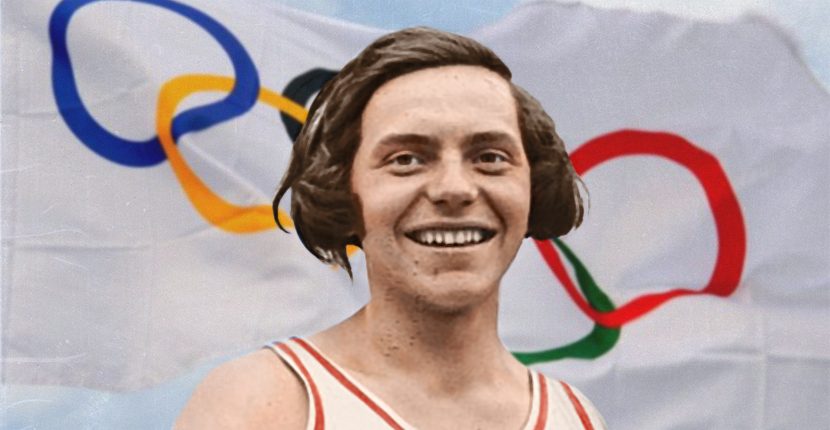The story of Dora Ratjen was set amidst a backdrop of controversy and society upheaval. In 1936, the Summer Olympics were held in Berlin. They will go down in history as the “Nazi Olympics” in which many controversies surrounding the politics of the Third Reich caught the eye of the world.
While Hitler saw the Olympics as a means to promote his idea of pure German superiority his plan severely backfired. This was mainly thanks to Jesse Owens, an African-American athlete who won four gold medals, smashing Hitler’s concept.
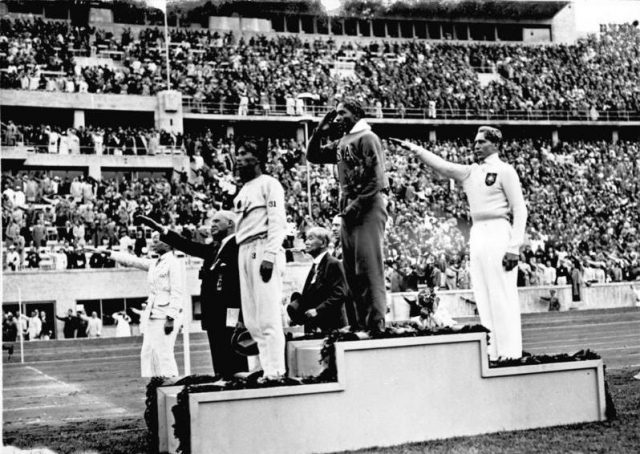
On the other hand, an issue that wasn’t mentioned during the Olympics, came to prominence two years after, as an oddity (which it was called at the time), which resulted in one person’s sports career being terminated. The “oddity” in question was the case of Dora Ratjen, a German athlete, whose appearance caused a railway conductor to report to the police that “a man dressed as a woman” was aboard his train.
This happened on 21st of September, 1938, in Magdenburg, Germany, while Ratjen was en route from Vienna to Cologne. Ratjen was returning from the European Athletics Championships, where she had just won a gold medal, and set the world record in high-jump for women.
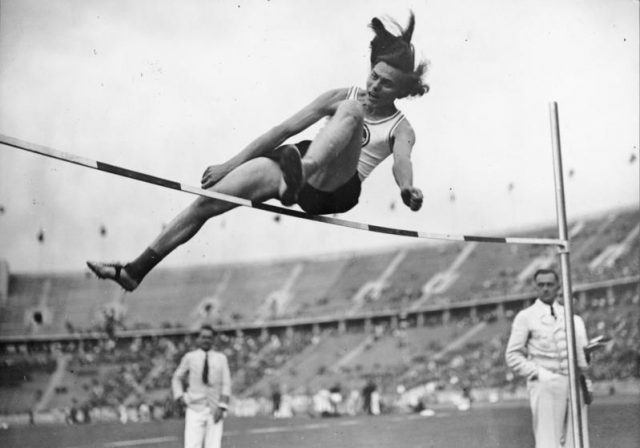
Just two years before this incident, at the 1936 Olympics, she had won fourth place in the women’s high-jump, without anyone drawing attention to her masculine physique. However, when Dora was apprehended in Magdenburg, she decided to tell her full story to the police, under the threat of being stripped down and forcibly examined.
What followed was a series of questioning which also involved her father, Heinrich, who gave the following statement for the police record:
“I was not standing at my wife’s bedside during delivery, rather I was in the kitchen at the time. When the child was born the midwife called over to me, ‘Heini, it’s a boy!’ But five minutes later she said to me, ‘It is a girl, after all.”
Dora, who was that day dressed in a grey two-piece, with skin-colored tights, herself testified regarding her specific medical condition. She confessed that she was, in fact, a man, despite being raised as a girl:
“My parents brought me up as a girl. I, therefore, wore girl’s clothes all my childhood. But from the age of 10 or 11 I started to realize I wasn’t female, but male. However, I never asked my parents why I had to wear women’s clothes even though I was a male.”
The transcript of the interrogation was discovered by the German media outlet Der Spiegel, which published an article in 2009, shedding light on the forgotten case of the non-binary athlete. Although one might think that Dora was reluctant to speak of this, it was noted in the police records that she showed honest relief for finally being able to address the issue which had forced her to conceal her true identity in front of other athletes, as well as women in general.
As for the appearance, it wasn’t unusual for female athletes to feature physical traits that could be described as “masculine”, such as stronger muscles and a deeper voice. While Dora certainly looked manly, so did many fellow athletes.
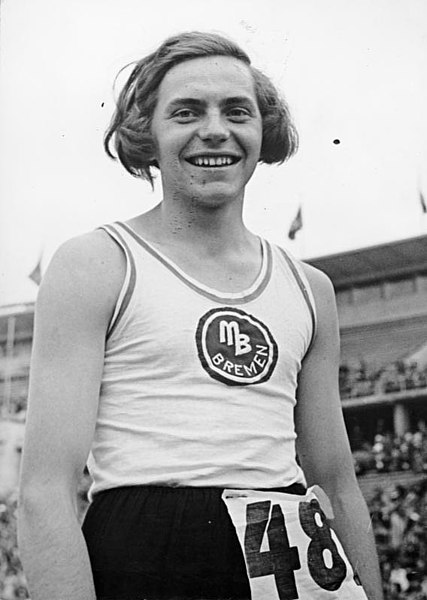
After the confession, a police physician was brought on the following day, to determine whether or not Dora Ratjen was a man. After concluding that the secondary sexual characteristics were definitely male, the doctor proceeded to examine the genitals. Although he was certain that the person was male, he noted that an anatomical anomaly in the shape of scar tissue was present, going backward from the underside of the male organ. He also concluded that this anomaly most probably prevented Ratjen to have intercourse.
The piece of redundant skin also explained how Ratjen was misgendered at birth. As soon as Dora was confirmed male, a radio message was sent to Berlin, reading:
Women’s European high-jumping champion Ratjen, first name Dora, is not a woman, but a man. Please notify the Reich Sports Ministry at once. Awaiting orders by radio.
Soon after, an avalanche of retrospective action was taken, resulting in her being disqualified from participating in any future sports events. Also, the gold medal won in Vienna was returned and handed to the women who won second place, as she was pronounced winner of the European Athletics Championships.
It’s not that Dora, who was soon named Heinrich, minded all that. Heinrich inherited his parent’s bar and ran it for the rest of his life while living in seclusion and refusing journalists and interviewers. However, controversy arose once again, following a 1966 article featured in Time Magazine, which claimed that Ratjen was planted by the Nazi Party to pose as a woman during the 1936 Olympics. The controversy sparked even higher, when Gretel Bergmann, Ratjen’s former teammate supported this claim.
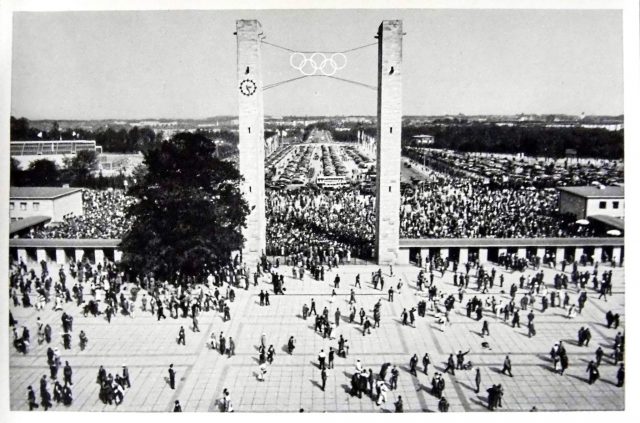
Bergmann was a German-Jewish athlete who was pushed out of the team just before the 1936 Olympics, due to her ancestry. She emigrated to the United States in 1937, where she lived until her death in 2008.
While there is no doubt about the fact that Bergmann was denied the right to compete due to horrific Nazi laws, according to the before-mentioned 2009 investigative article by Spiegel, the claim that Dora/Heinrich Ratjen was put in to replace the Jewish athlete is false.
The theory promoted by Time featured the idea that Ratjen literally posed as female a few years before the Olympics, when in fact, he was raised as a girl by his parents and made it into the team under the pretext that he was female.
Related Article: Female Athletes Who Organized Their Own Olympics
In fact, according to the little that is known of Ratjen’s later life, he had trouble adjusting to his new role as a man, having spent most of his life thinking and acting otherwise.
